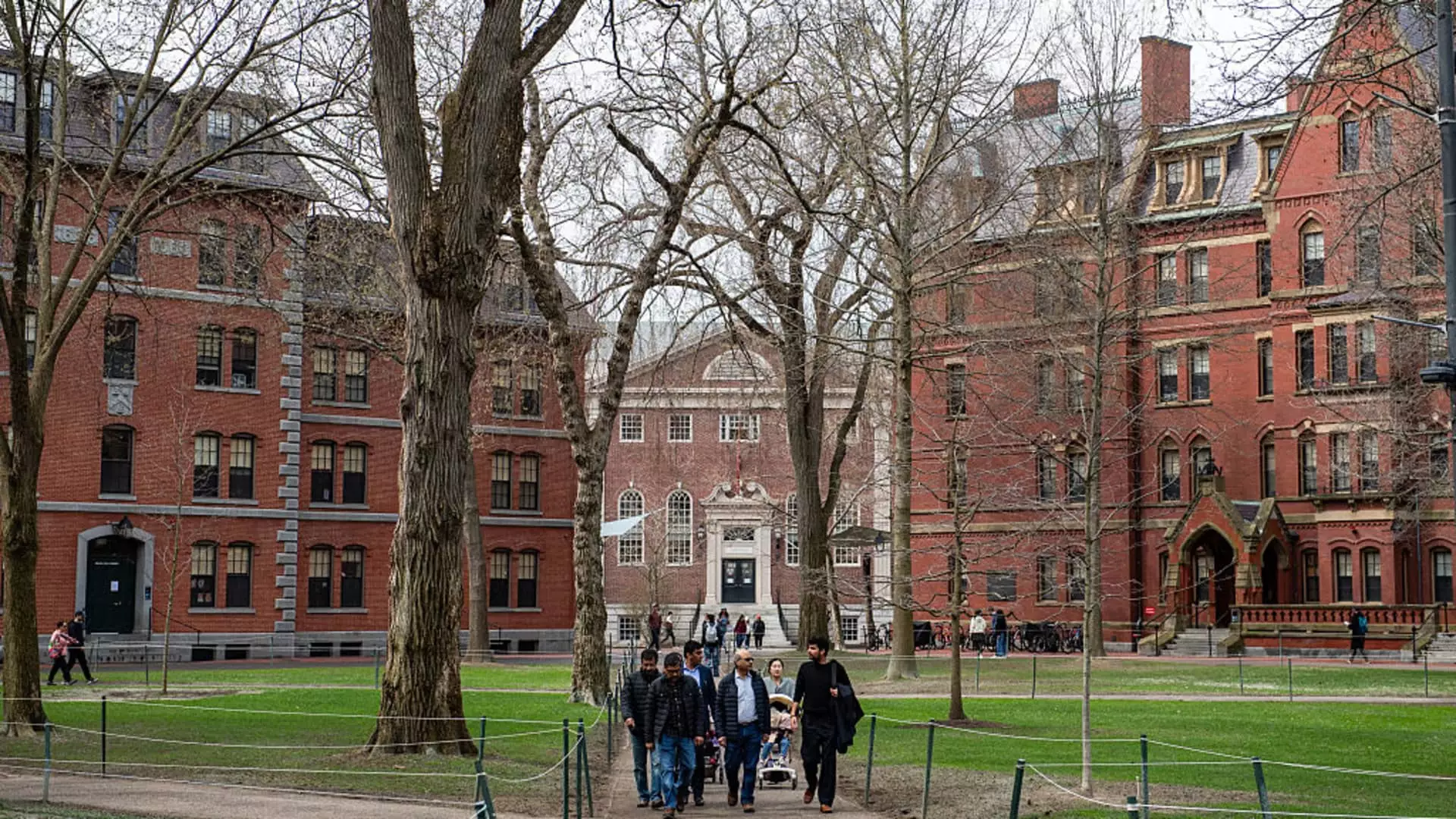In an unprecedented move, the recent correspondence from the White House to Harvard University has sparked outrage and concern over the integrity of American higher education. A letter dated April 11 called for an array of drastic changes to the university’s policies, most notably the elimination of Diversity, Equity, and Inclusion (DEI) programs and the scrutiny of international student admissions based on ideological beliefs. What makes this case even more alarming is the revelation that the letter was sent without proper authorization from senior White House officials. This revelation casts doubt not only on the intentions behind the letter but also on the decision-making practices within a government body tasked with upholding the fundamental values of a free and democratic society.
The Fallout of Political Interference
The response from Harvard was strong and unyielding. The university firmly rejected the White House’s demands, which could jeopardize nearly $9 billion in federal funding. This financial threat lingers over Harvard, serving as a stark reminder of the dangers posed by political interference in educational institutions. Harvard officials have been clear: while the letter may have been realized as a blunder, the consequences of such government actions are far from trivial. They can undermine not just the university’s mission but also erode the trust that students and educators place in an institution expected to be a bastion of academic freedom and integrity.
The Government’s Response: A Threatened Backlash
In retaliation to Harvard’s refusal to comply, the White House swiftly announced a freeze on approximately $2.2 billion in grants to the university. This tit-for-tat escalates the situation into a dangerous precedent, where political maneuvering threatens the foundations of education. Such actions may resonate with some who believe that institutions should be held accountable to the government, but they overlook the greater principle: academic independence. By wielding financial leverage to impose ideological conformity, the White House is effectively stifling the diversity of thought that is so crucial to the academic process.
Questioning Authenticity and Intent
The legitimacy of the original letter is further mired in controversy as insiders report varying accounts of how it was mishandled. Harvard’s spokesperson underlined the absurdity of questioning the letter’s authenticity; it bore official letterhead, was authored by federal officials, and arrived from a credible email account. This inconsistency showcases a troubling lack of cohesion within the administration itself, raising questions about who is truly steering the ship. Are these breaches of protocol a mere accident, or do they signify a deeper ideological agenda lurking beneath the surface?
The Broader Implications for Higher Education
The implications of this incident extend beyond Harvard and reverberate through academia at large. If this kind of interference becomes commonplace, it sets a dangerous template for future interactions between government and educational institutions. A society that values freedom and diversity must also protect the sanctity of knowledge, allowing diverse voices and opinions to flourish without fear of retribution or coercion. Higher education should be a realm where ideas can be explored and challenged—especially those that may clash with current political ideologies.
The troubling confrontation between the White House and Harvard is symptomatic of a larger issue: the tension between governmental authority and academic independence. The lessons drawn from this experience should serve as a call to action for educators and policymakers alike—to defend the essence of education against encroachment from political agendas, ensuring that it remains a field marked by inquiry and enlightenment rather than compliance.


Leave a Reply